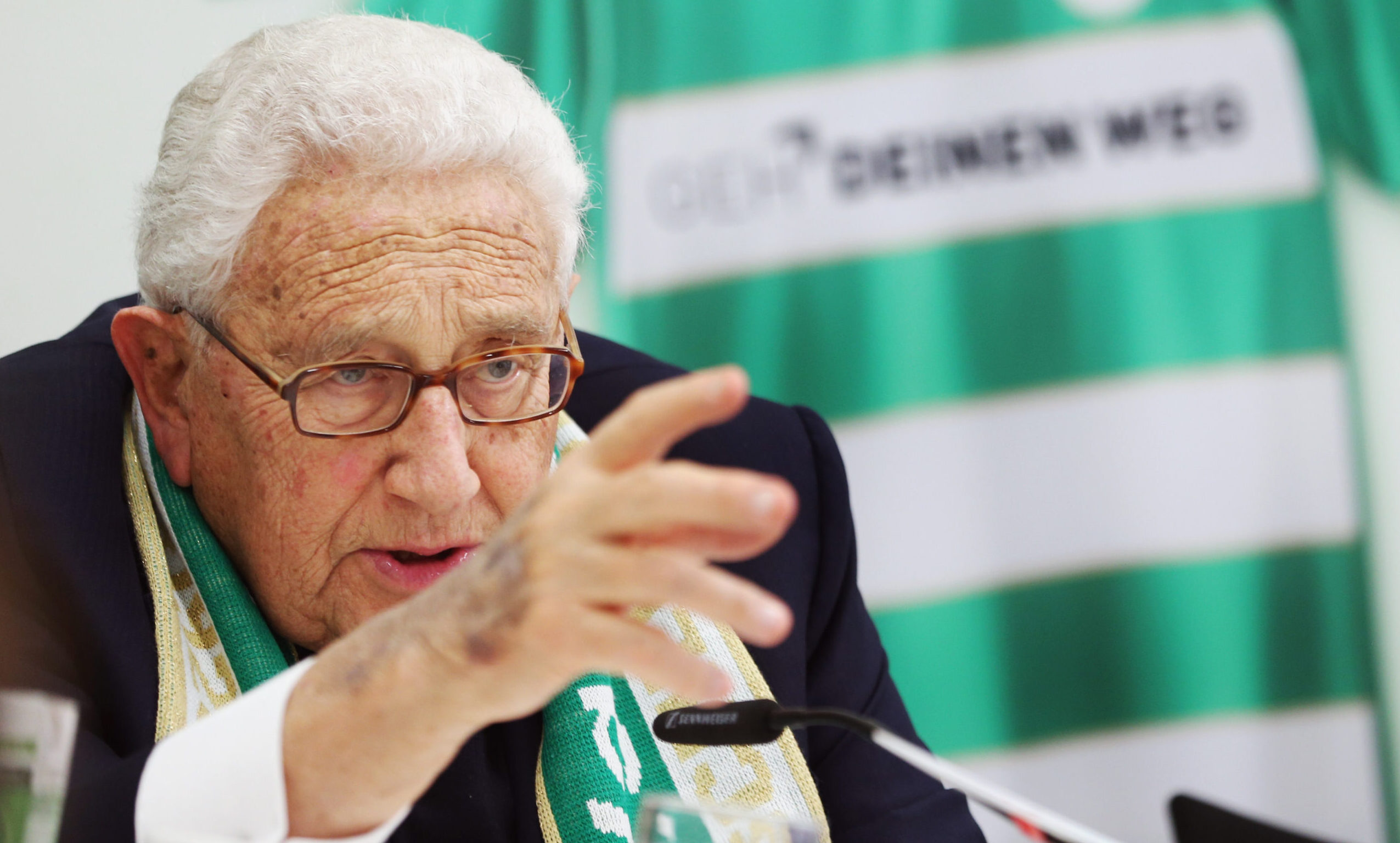In a life marked by both diplomatic coups and contentious policies, Henry Kissinger remained both active and inscrutable right up to the end. His story is not just one of political finesse but also of actions and decisions that sparked intense debate and criticism. But oddly enough his affection for football — which began in pre-war Germany, where he was an avid fan of SpVgg Fürth — offers a partial lens through which to examine the complexities and contradictions of his character and career.
Kissinger’s passion for football, a game he often described as “complexity masquerading as simplicity”, is an apt metaphor for his approach to foreign policy. It was partially through football, after all, that he came to realise that different cultures and ethnic groups performed differently on the pitch, and had to be managed differently: “Nobody would mistake a Brazilian team for a German team. The French teams are always the most elegant team in Europe,” he told Reuters in 2019.
Without going too far, one can draw certain parallels between Kissinger’s strategic manoeuvres in the realms of geopolitics and his understanding of football. Just as he admired Franz Beckenbauer for transforming the libero role by adding an offensive dimension to a primarily defensive position — squeezing additional value where many assumed nothing more could be done — Kissinger, in a comparison that he himself made, sought to seize a competitive advantage by redefining the role of the United States on the global stage, often in convoluted and ethically ambiguous ways. His advocacy of realpolitik, emphasising practicality over moral considerations, can be likened to a team focusing on winning at all costs, regardless of the play’s elegance or fairness.
Kissinger’s role in the covert bombing of Cambodia and the expansion of the Vietnam War, for instance, reflects one of his many win-at-any-cost strategies, often disregarding the humanitarian toll. The bombings led to widespread destruction and civilian casualties — leaving behind a trail of devastation and, ultimately, a mixed or even losing result for the United States, which “succeeded” at killing millions but failed to prevent a communist takeover of Vietnam.
The same could apply to his involvement in the 1973 Chilean coup d’état, which precipitated the violent overthrow of the democratically elected President Salvador Allende, or his response to the Bangladesh Liberation War. His support for Pakistan, despite reports of human rights violations, was akin to backing a useful player with a notorious reputation, prioritising home-team interests over ethical considerations.
Oddly, Kissinger’s unrelated interest in football provided occasional glimpses into his more personal side. His admiration for players like Beckenbauer and his attempts, as a sort of “grey eminence”, to bring the World Cup to the USA helped shed additional light on his stern and calculating public persona. Here was a man who, as former colleagues like Nixon staffer Daniel Patrick Moynihan observed, could navigate the complex corridors of power with a certain degree of nerdy charm that belied the often harsh realities of his policies.
Kissinger’s early life, fleeing Nazi Germany and immigrating to the United States, shaped his worldview profoundly. His academic prowess, starting as a counterintelligence officer and eventually becoming a Harvard professor, laid the groundwork for his future political strategies — but long before that, he was a man who learned about how humans react under pressure by studying the football pitch. His ascent was marked by a pragmatic approach that sometimes sidelined moral considerations, a football game where strategic fouls — outright dives, in some cases — are essential to maintaining a certain state of play.
But geopolitics done at the helm of a world superpower is no game. Kissinger’s life and career were marked by flashes of strategic brilliance and controversial policies that had profound and often negative impacts on international relations and human rights — chickens that are still coming home to roost in US-backed nation-states like Israel. His actions on the world stage constituted a mix of tactical genius and questionable plays, leaving behind a “great game” of foreign policy that must forever adapt, for good or ill, to his strategic innovations.











Join the discussion
Join like minded readers that support our journalism by becoming a paid subscriber
To join the discussion in the comments, become a paid subscriber.
Join like minded readers that support our journalism, read unlimited articles and enjoy other subscriber-only benefits.
Subscribe